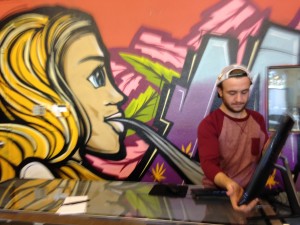A job option for medical marijuana patients
While the recreational side of marijuana legalization is supposed to be aimed at people who want to use the drug for fun, I’m often surprised by how many folks are buying from recreational stores to use for medical purposes.
And I’ve also noticed that the stores and related cannabis businesses hire a lot of medical marijuana patients to work for them.

That seems to me to be for two reasons: One, medical patients know a lot about the product. Two, the cannabis industry is one of the few places that medical marijuana patients can work without the stigma of mandatory drug tests.
Watching the news this morning I saw that Oregon has put the kabosh on any medical marijuana card holders who want to run day care centers. Patients can either give up their medical marijuana card or give up their home based day care businesses.
But at the same time, they can still take other prescription drugs while owning and operating a day care.
In Washington, even after legalization, drug tests from businesses are still the norm. And many businesses, The Columbian included, have a zero tolerance for marijuana in the system – even if it’s found in a drug test days after use on personal time.
So where are medical marijuana patients supposed to work?
At least the cannabis industry is helping some of them find employment.
Kyle Stetler, a budtender at Main Street Marijuana, was a recreational pot smoker until about a year ago, when he was diagnosed with fibromyalgia, a disease that causes muscular skeletal pain, fatigue and sleep problems.
“My body is a torture chamber,” Stetler said. “Imagine a bunch of little guys inside your body pulling things in ways they’re not supposed to go. Sometimes I’ll wake up and my shoulder is pushed out toward my chest, or my neck will be twisted at a strange angle.”
He got a medical card for the disease and needs to use cannabis oil hourly to function. As part of that, he started learning more about medical dispensaries and how to make concentrates.
“Before I was using it to get high and have fun, be happy, but now I need it just to get out of bed,” Stetler said. “I don’t get high with it so much anymore, it just goes to the pain.”
His expertise as a past smoker and through his experience with dispensaries helped him get hired at Vancouver’s first retail store, he said.
But now he’s educating himself further so he can get better pay and stay in the industry long-term, he said.
“I’m almost done with my master grower certification from THC University,” he said of the online school, http://thcuniversity.org/, based out of Colorado. “After that I’ll probably go through their budtender certification program.”
Viridian Sciences is another cannabis related business, a Vancouver software company, that allows employees to use marijuana in their spare time.

One employee, who has a medical card for use with debilitating migraines, is also allowed to use marijuana when she works to alleviate symptoms, said Justin Dufour, the owner.
No employer wants to have a business full of drug-impaired workers, but that’s not what medical marijuana patients are.
Many say the drug actually doesn’t get them high because the effects go toward the pain. Without it, they can’t function.
And on the other side, the general public, who may not want to deal with the stigma of owning a medical marijuana card, have also been going to the rec stores to buy marijuana strains geared toward alleviating pain, helping with sleep or reducing anxiety.
And that’s also part of the business plans for New Vansterdam, CannaMan Farms and Main Street Marijuana.
CannaMan Farms is growing several strains looking for high CBD content, a component that doesn’t create a high as much as it helps with pain. The tier one farm is also growing high THC strains, a drug that is associated with the high but also has medical benefits.
And New Vansterdam is owned by people who have strong medical backgrounds. Part of the purpose of the store is to provide a wide variety of strains for a wide variety of purposes.
There are still a lot of issues to be resolved about drug testing and company human resources policy and liability. A lot of that has to do with federal versus state laws about the legality of the drug.
But the industry is, at least, a small refuge for these patients. It will be interesting to see how these issues continue to evolve here and in Oregon, as that state begins to contemplate legalization once again.
Cheers,
-SueVo

